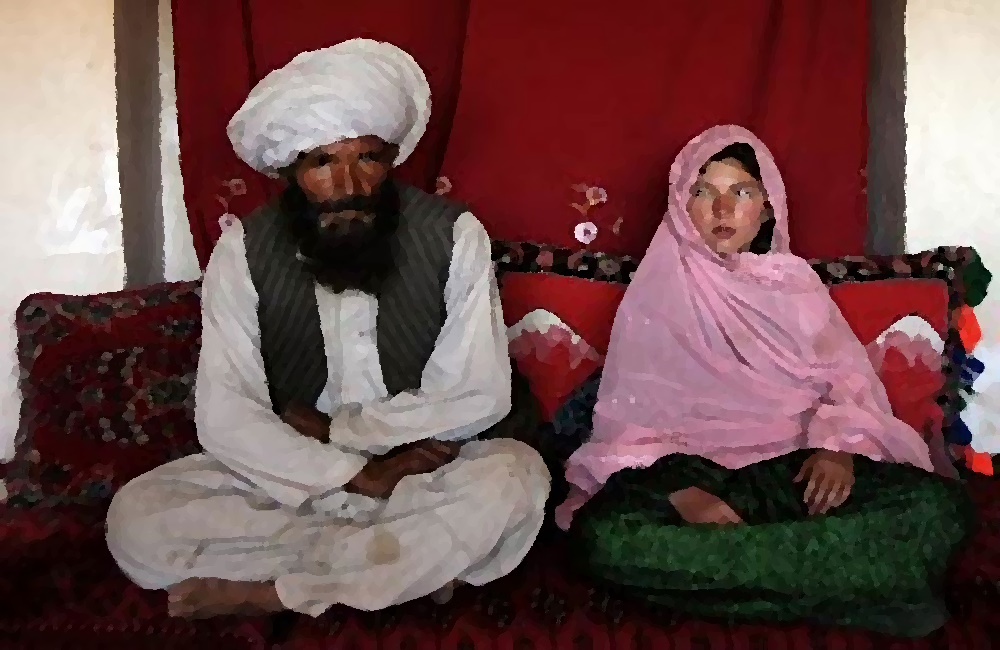Surah 65, verse 4 of the Qur’an is frequently referenced in discussions concerning child marriage in Islam. This verse, found in the chapter on divorce (Al-Talaq), provides guidelines for the waiting period (iddah) after divorce or widowhood. A specific point of controversy revolves around the reference to girls who “have not yet menstruated,” which has led to differing interpretations on the permissibility of child marriage.
The Text of Surah 65:4
The verse states: “And those of your women as have passed the age of monthly courses, for them the prescribed period, if you have any doubts, is three months, and for those who have no courses (i.e., they are still immature), their ‘iddah’ (prescribed period) is three months likewise, except in the case of death. And for those who are pregnant, their waiting period is until they give birth to their burden.”
The Reference to “Those Who Have Not Menstruated”
A central issue arises from the mention of females who “have no courses,” which refers to those who have not yet menstruated. This has been interpreted by some to include prepubescent girls, leading to debates about whether child marriage is permissible in Islam. The interpretation of this part of the verse is crucial because it appears to acknowledge the possibility of marriage and divorce for girls who have not reached puberty, which raises ethical questions in modern discussions.
Historical context
Islamic scholars often attempt to justify Surah 65:4 and the marriage of Prophet Muhammad by citing the historical context in which the Qur’an was revealed. Indeed, 7th-century Arabia, like many other societies at the time, practiced early marriage, and these unions were often tied to tribal customs, family alliances, and societal structures that played crucial roles in survival. While it is true that young marriages were culturally accepted in that era, this discussion is not about social customs, but about moral values.
It is also possible that, even in European civilizations, there were individuals who were attracted to young girls. However, according to Christian teachings and the Bible, such practices are unequivocally condemned and considered sinful. In Christianity, each person is responsible for their actions, and those who commit such acts are accountable for their sins. In contrast, the practice of marrying young girls is not prohibited in the Qur’an, the holy book of Islam, but permitted.
Contemporary Islamic Views and Legal Reforms
In today’s world, child marriage is widely condemned as a violation of human rights. Many Muslim-majority countries have enacted legal reforms to align Islamic law with modern standards, including setting a minimum legal age for marriage, typically at 18 or older. Countries such as Tunisia and Turkey have established 18 as the legal marriage age, while Egypt and Indonesia have also raised their minimum marriage age to protect minors from early marriages.
Islamic law, or Sharia, is derived from the Qur’an, Hadith (sayings and actions of the Prophet Muhammad), and centuries of legal interpretation. Historically, classical interpretations of Sharia allowed for child marriage based on the cultural norms of early Islamic society. However, many modern scholars argue that these interpretations should be revisited in light of current human rights principles. They advocate for reform, reflecting the dynamic nature of Islamic jurisprudence and its capacity to adapt to evolving ethical and social norms.
Many contemporary scholars emphasize that Surah 65:4, which addresses the waiting period for divorce or widowhood, should be understood as acknowledging a historical practice rather than endorsing child marriage. They argue that the Qur’anic principles of justice and compassion should guide Muslims to reject such practices today. This perspective highlights the flexibility of Islamic teachings to adapt to modern ethical standards and underscore the commitment to protecting the rights and well-being of children.
Conclusion
Many scholars assert that this verse is about marriage and the customs of the 7th century, which differ from those of today. However, before it addresses marriage, this verse primarily discusses sex and pregnancy, which cannot occur without sexual relations. Jesus said, “Watch out for false prophets who come to you in sheep’s clothing, but inwardly they are ferocious wolves. By their fruits, you will recognize them.” This verse serves as a fruit that reveals Muhammad’s practices. No one can deny that pedophilia is a practice in Islam, and this verse confirms it. If not, the waiting period for those who have not yet menstruated would not be included.
It is commendable that some countries have taken legal action to protect children from early marriage and that many modern scholars advocate revisiting traditional interpretations in light of current human rights principles. However, this does not excuse Islam but rather underscores its shortcomings. A religion should not need to adapt to social and contemporary principles; instead, these principles should align with immutable moral and religious values. In this regard, the failure of traditional Islamic interpretations to meet modern ethical standards reveals a significant issue.
